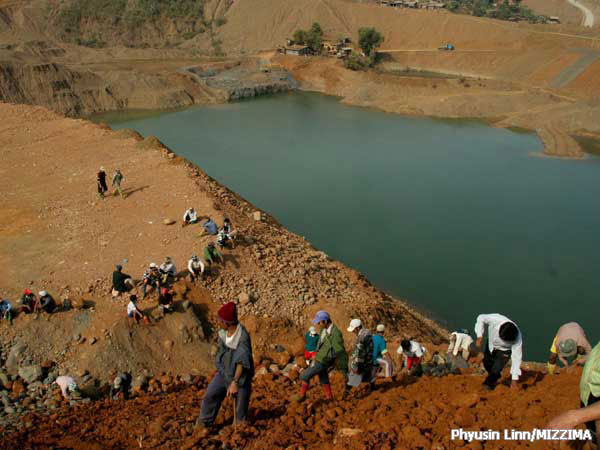A bill that will allow local processing, cutting and polishing of jade has been passed by the Kachin State Assembly. When enacted, lawmakers say many new jobs will be created in the state.
 USDP party legislator Pho Pa Kywe of Shwegu constituency 2 introduced the bill on March 1, and the bill passed unanimously. It must now be signed by the president.
USDP party legislator Pho Pa Kywe of Shwegu constituency 2 introduced the bill on March 1, and the bill passed unanimously. It must now be signed by the president.
In the 2008 Constitution, states were given powers to pass legislation in defined areas of energy, electricity, mining and forestry.
Currently, jade stones are mined in Kachin State, but the stones must be sent to Naypyitaw for cutting and polishing work, which increases the final cost of the products.
The bill's passage will be benefit both jade merchants and local people in Kachin State, said La Awng, vice chairman of the Jade and Gemstones Merchants Association (Myitkyina).
“The livelihood of local people will be better. The jade market will provide opportunities for more local people,” he told Mizzima.
The Jade and Gemstones Merchants Association (Myitkyina) was formed on March 3. Officers are Za Laung, chairman; and Tu Khaung, secretary. The association, with about 400 members, has a head office in Naypyitaw with branches are in Phakant, Mandalay, Sagaing and Mogok.
The current session of the Kachin State assembly was convened on February 27. The assembly is now deliberating on the state budget. The assembly has a total of 51 legislators of which 38 are elected and 18 are military-appointed.
The economy of Kachin State is predominantly agricultural, according to Wikipedia. The main products include rice and sugar cane. Mineral production includes gold and jade. Hpakan is a well-known area for jade mines. Most of the jade stones extracted in Burma (25,795 tons in 2009-2010 and 32,921 tons in 2008-2009) are from Kachin State.
The largest jade stone in the world (3,000 tons: 21 meters long, 4.8 meters wide and 10.5 meters high) was found in Hpakan in 2000. Most raw jade stones are sold to Chinese traders in sales conducted in Naypyitaw several times each year


